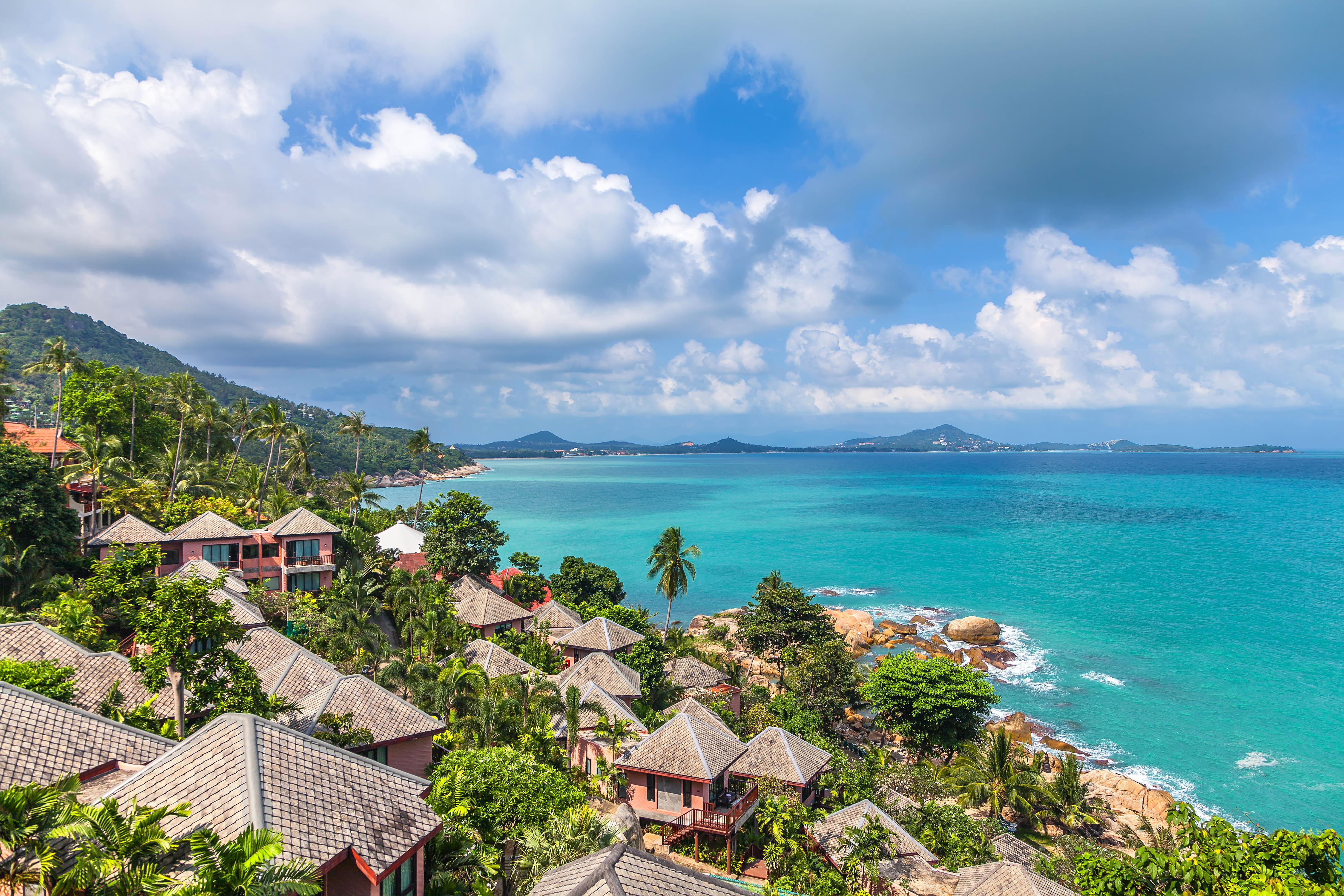Scuba Diving in Krabi
Scuba diving in Krabi is absolutely a spine-chilling excursion for all the adventure enthusiasts. Located along the west coast of southern Thailand, Krabi has the best underwater sites making it an ideal spot for scuba diving bringing flocks of water babies. It does not matter if you're a complete novice or an experienced diver, the diverse Krabi waters make it a larger than life experience for all.
Include scuba diving in Krabi in your budget friendly Thailand tours, and gear up for this wondrous marine life insight and raise your diving bars to the professional level with various certified courses by PADI professionals. The pristine scenic beauty makes Krabi Island scuba diving fun, both below and above the waters. Ranging from shallow confined water dive to the open waters, the underwater world of Andaman Sea gives you a chance to expand the horizons of your diving skills to the fullest potential.
Some of the prominent Krabi scuba diving sites including Phi Phi National park, Ao Nang bay, Shark Point Marine Sanctuary, and King Cruiser Super days, with alluring soft corals, surprisingly impressive quantities of macro-marine life making you cringe to ascent to the surface. Arm yourself with scubas, fins, and your exposure suits to indulge in an experience like never before and add this adventure to your itinerary.
Best Scuba Diving Destinations
Our Partners
Krabi Scuba Diving FAQs
What are the best places for scuba diving in Krabi?
Ao Nang
Ao Nang is the most popular diving site for Scuba diving in Krabi. Take a 40-minute longtail or a 10-minute speedboat ride from the Krabi shore to get to this paradise. The water near the island has a wide variety of exotic marine life, reefs, and corals.
Being home to the quality inclined PADI 5 star diving center, Ao Nang offers you the best diving experience with the tinge of professional assistance at its epitome. The major diving locations are Similans Islands, Hin Daeng, Shark Point, and Hin Muang to name a few.
Phi Phi Island
This tropical island has almost every bit of its shoreline offering a tropical reef, making it more appealing for the water babies. With an abundance of shipwrecks and submerged pinnacles, it also attracts a lot of explorers to indulge in the underwater quest.
This island has a huge variety of marine life including numerous colorful fishes, leopard sharks, and the famous blacktip reef shark adding flares to your trip to phi phi island beach.
Koh Rok
This diving site has a stupendous marine life attracting a whole bunch of scuba divers. The colorful reef fish, Kuhl’s blue-spotted stingrays that lie partially hidden in the sea bed under the sand, octopus, and moray eels.
Koh Rok has a huge variety of marine life that add on to the beautiful underwater adventure making it worth the last penny. The eastern side of this island has a fairly strong current bringing a lot of pelagic fish, mackerel, and cobias to sight.
Loh Samah Bay
A popular site for snorkeling and scuba diving in Krabi Island, separated from Maya Beach by a thin limestone wall - Loh Samah Bay gives you an unusual treat of night dive. The glowing bioluminescent algae, giant morays, octopus, shrimps, lobsters, lionfish, and whatnot, the island commingles varied aqua life bringing in a flock of tourists to relish the eye-feasting opportunity. Head up with the torches and enjoy diving at the Loh Samah Bay for a unique exposure to the waterline.
Maya Bay
World-renowned for being the site used for filming the super hit Leonardo Di Caprio movie - ‘The Beach’, this beach is a popular spot for tourists all around. The picturesque view of the underwaters will add feathers to your scuba diving experience. With an array of more than 80 species, the marine life around this bay is quite colorful making it irresistible for the divers to skip.
Hin Bida
Home to a huge variety of water species, Hin Bida is actually a submerged rock outthrust dwelling in the southeast of Koh Bida Nok and Koh Bida Nai. It rises 18 km from the sandy bottom making it an ideal destination for scuba diving in Krabi.
It is covered with both hard and soft corals providing shelter to the zebra sharks in the fringes of the reef. Hin Bida is quite sensitive to the tidal currents, therefore, if you are planning to visit the place you must refer the calendar to look for the full and new moon days in advance.
Does scuba diving require swimming?
No, swimming is not required for scuba diving. Unlike swimming, scuba diving does not include the hand movements and you ought to be neutral buoyant - a state where you neither float or swim like a fish. Though swimmers have an advantage underwater, a few minutes of training will provide you with the right kicking style to enjoy your dive.
What should you never do while scuba diving?
- Never hold your breath while you’re in the water.
- Never dive without a plan and do not deviate from it
- Do not put yourself under any performance pressure in water and stay within your comfort boundaries.
- Do not get into the water without checking your equipment and gears.
- Do not restrain from using the five-point ascent abbreviation “STELA” - Signal, Time, Elevate, Look, and Ascend.
- Learn and memorize the scuba diving hand signals to be ready for any situation.
- Do not forget to perform the 3-minute safety stop at 15 feet to decrease the chances of decompression sickness.
- Do not dive until you are physically and mentally unburdened. Both ways the stress might add obstacles to your breath patterns hence arising accidental conditions.
What should I wear during Scuba diving in Krabi?
You must stick to the wet suits as the standard attire while Scuba diving in Krabi. The wet suit protects the body from the sun and the other pitfalls that can happen in the open sea. Make sure you do not wear too many layers underneath. It is advisable to wear the least layers that are body fit. Speedos for men and bikini wear for women is the ideal attire to wear underneath the wet suits.
Is scuba diving safe in Krabi?
Though scuba diving comes with risk, scuba diving in Krabi, Thailand maintains all the safety standards commingling the certification courses ranging from the recreational level to the professional level by PADI or CMAS. Make sure you take all the safety precautions while you get into the water and do not forget to keep the don’ts in your mind.
What are the different levels of scuba diving?
Recreational Scuba Diving Certification Levels:
- PADI Scuba Diver Or Junior PADI Scuba Diver.
- Open Water Diver (OWD) Or Junior Open Water Diver.
- Advanced Open Water Diver (AOWD).
- Scuba Diving Certification Level for Rescue Divers.
- Master Scuba Diver.
- Professional Scuba Diving Certification Levels.
- Dive Master.
- Assistant Instructors.
- Open Water Scuba Instructor (OWSI).
- Master Scuba Diver Trainer.
- IDC Staff Instructor.
- Master Scuba Instructor.
- Course Director.
Do I need a Licence to scuba dive?
No, you do not need a license to scuba dive. However, diving without being certified can put you in unforeseen hazardous situations. Also, you will have a hard time finding a shop that would let you buy the equipment without having a scuba diving certificate. With one-day certification programs running, it is advisable to enroll and get proper training before you dive in the water. After all safety first!
How deep do you go while diving in Krabi?
The wondrous water of Andaman sea features deepest dive around 70 metres and the most shallow dive around 5-10 metres. The recreational diving certificates will take you till 40 metres as per PADI and CMAS standards while you will require professional certification and technical skills to go beyond 40 metres while scuba diving in Krabi Thailand.
What is the age limit for scuba diving?
Scuba diving in Krabi brings a never like before diving experience for the kids at Koh Phi Phi National Marine Park by PADI teaching the basic skills to ones of age 10 years and above. This involves two 12 metres deep dive in the pool. Isn’t that amazing? There is no maximum limit to scuba diving, only your fitness matters.
What is the weight limitation in scuba diving?
There is no weight limitation in Scuba Diving. The only condition is to be completely fit in accordance with the pre-decided standards. You could be bulky and absolutely fit or be lean and not even a bit fit. The weight does bring up an uncalled challenge sometimes but it can be managed with regular diving practice and training.
Is there a health issue limitation for scuba diving?
Krabi Island Scuba diving centers indulge in the fitness check before you dive. Even if you have diabetes or asthma and you are fit enough you can dive. In case of any pain in the body or even minor stress, it is advisable to reschedule your underwater trip.
Though you must get everything prior to the trip to Krabi if you’re planning for scuba diving here. In case of any chronic illness or heart disease, you must take the advice of your doctor and let the trainer or operator know about your medical condition.
Can someone do scuba diving who hasn't done it before?
Yes. There is always a first time after all. With Krabi Scuba diving centers running the certification programs all throughout the year, you can learn scuba diving from the beginners' level and rise your diving bar to the professional level. Get enrolled in the PADI or CMAS certification program and dive in.
What are basic scuba diving precautions?
It is always better to take up precautions to avoid getting into any hazardous situation. Some of the precautions are as follows:
- Never hold your breath while you are in the water to avoid over-expansion of lungs.
- Always follow the rule of thirds - keep a third of air reserve for the beginning, ascent and the journey.
- Make sure you plan your dive and then stick to the dive plan.
- Do not push yourself beyond your capacity while in water.
- Make sure you are physically and emotionally fit the day you plan your dive. Do not hesitate to reschedule it even the last minute if you feel restrained.
- Always take someone along with you to dive at least till you do not have the professional certificates.

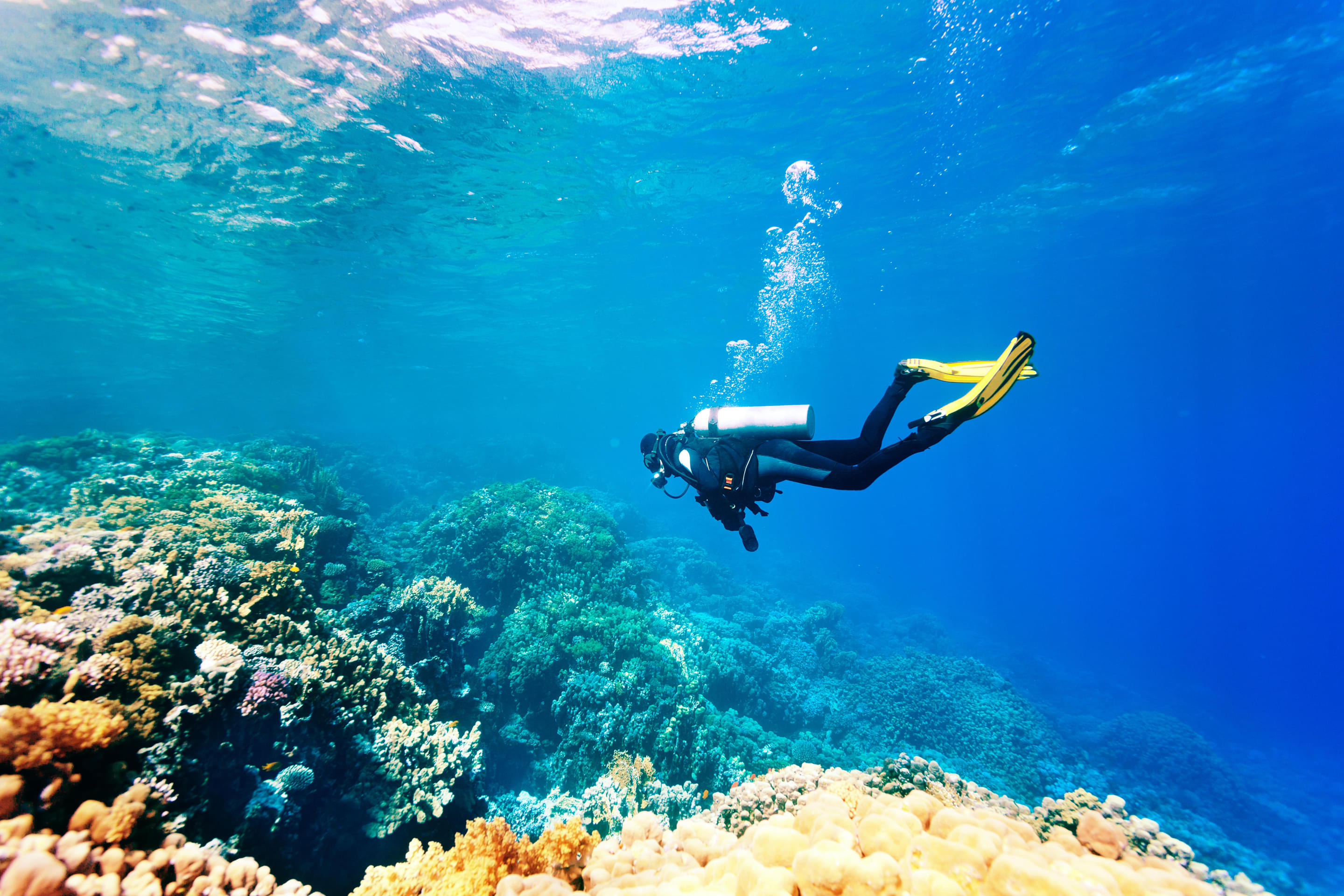
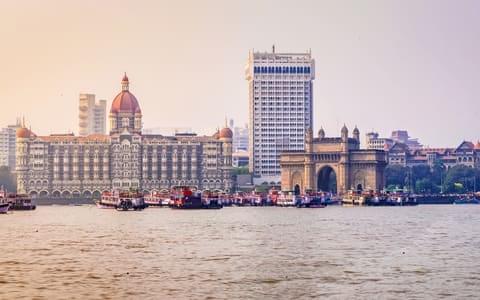
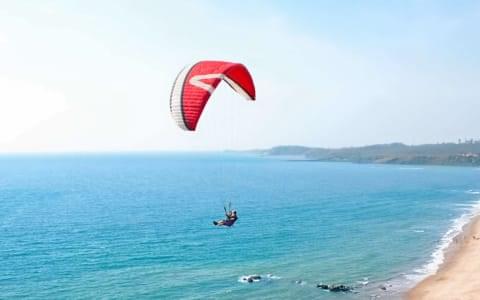
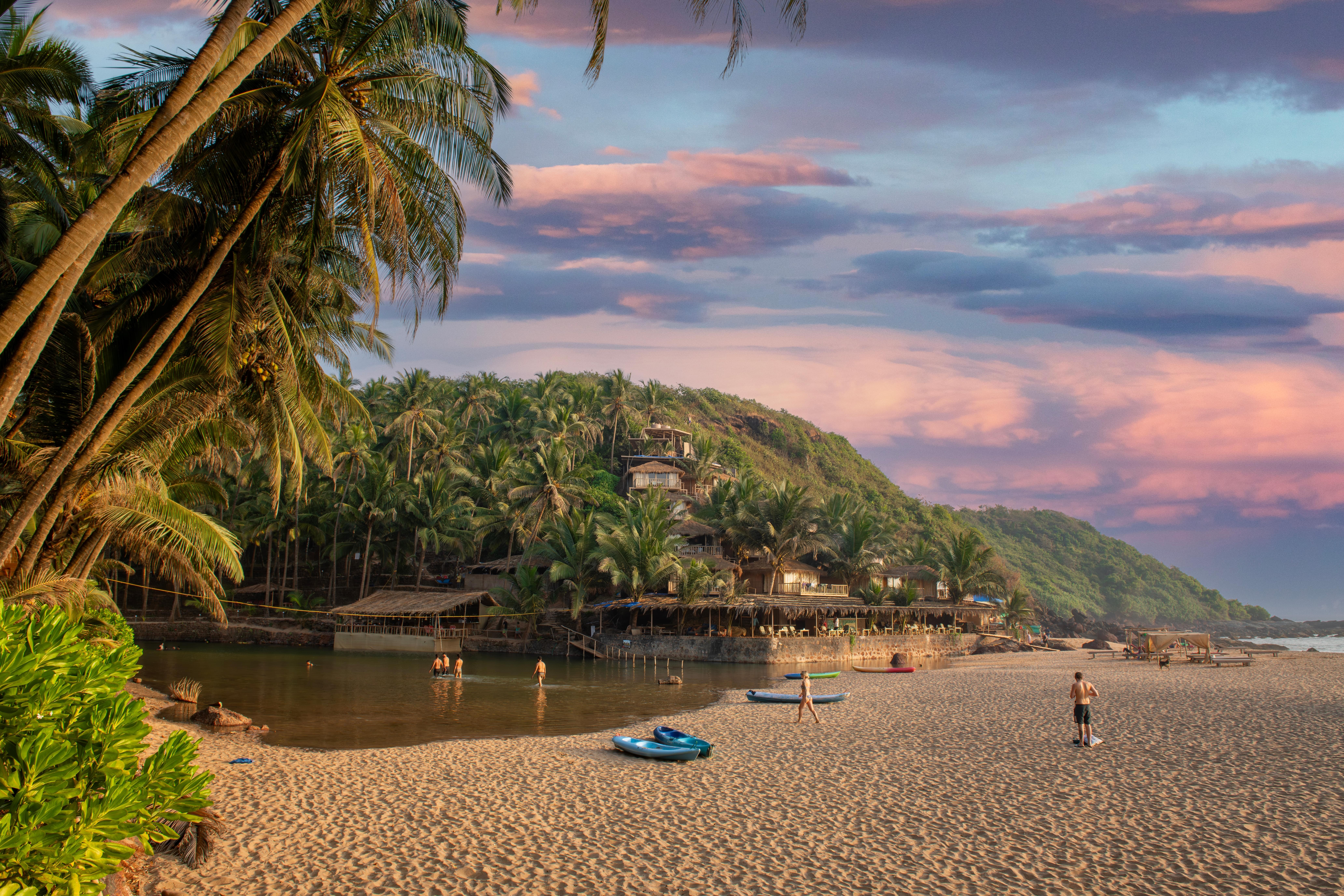
.jpg.jpg)
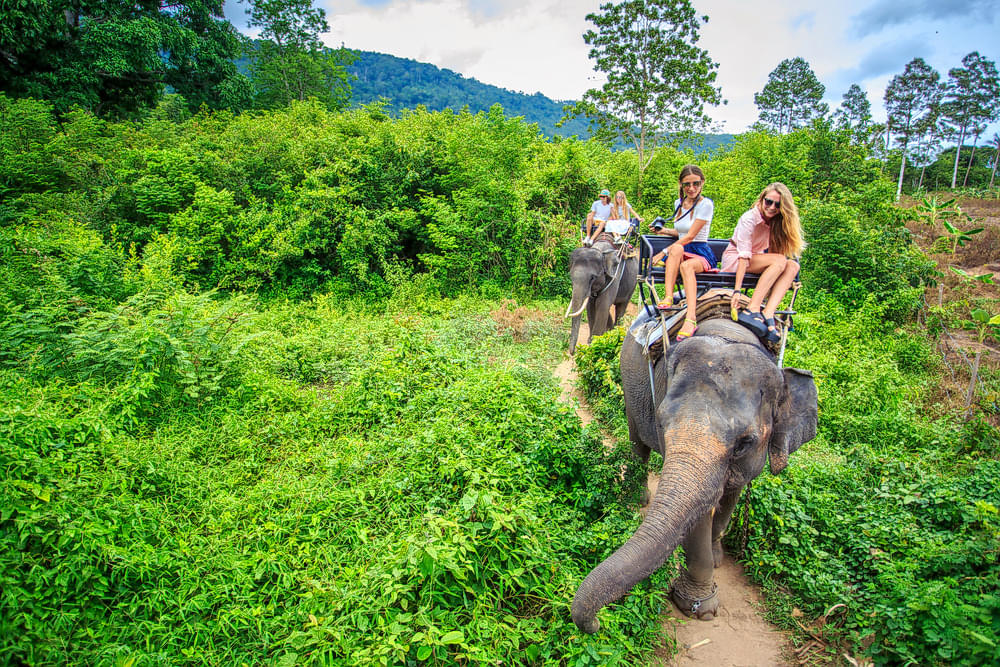
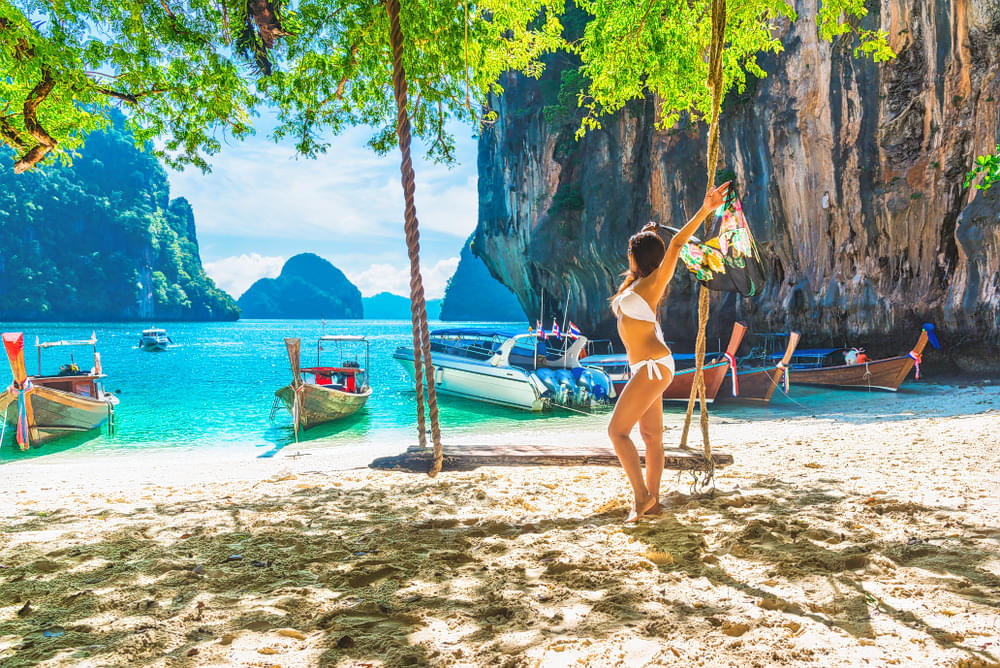
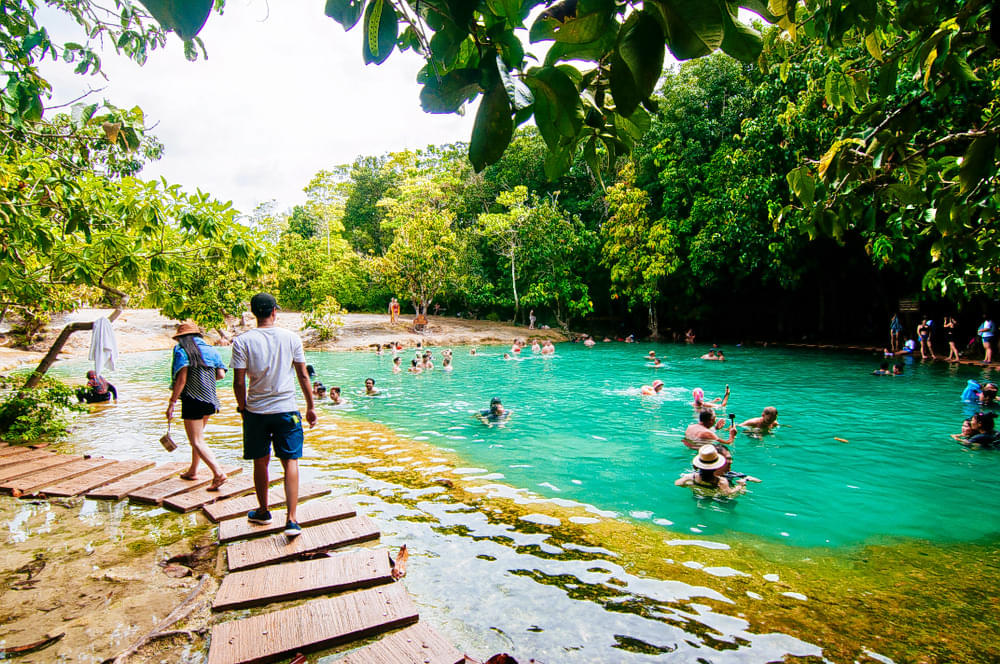
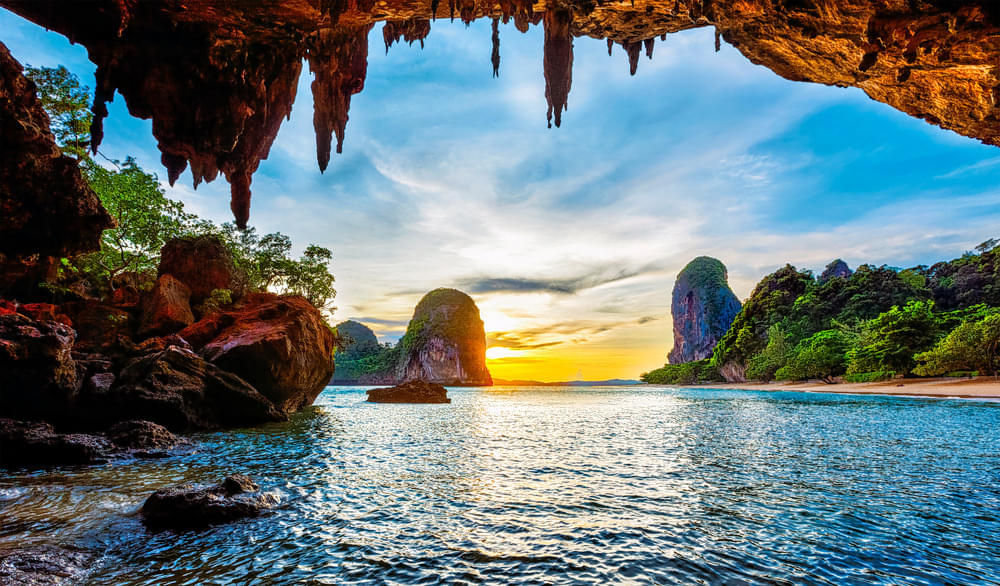
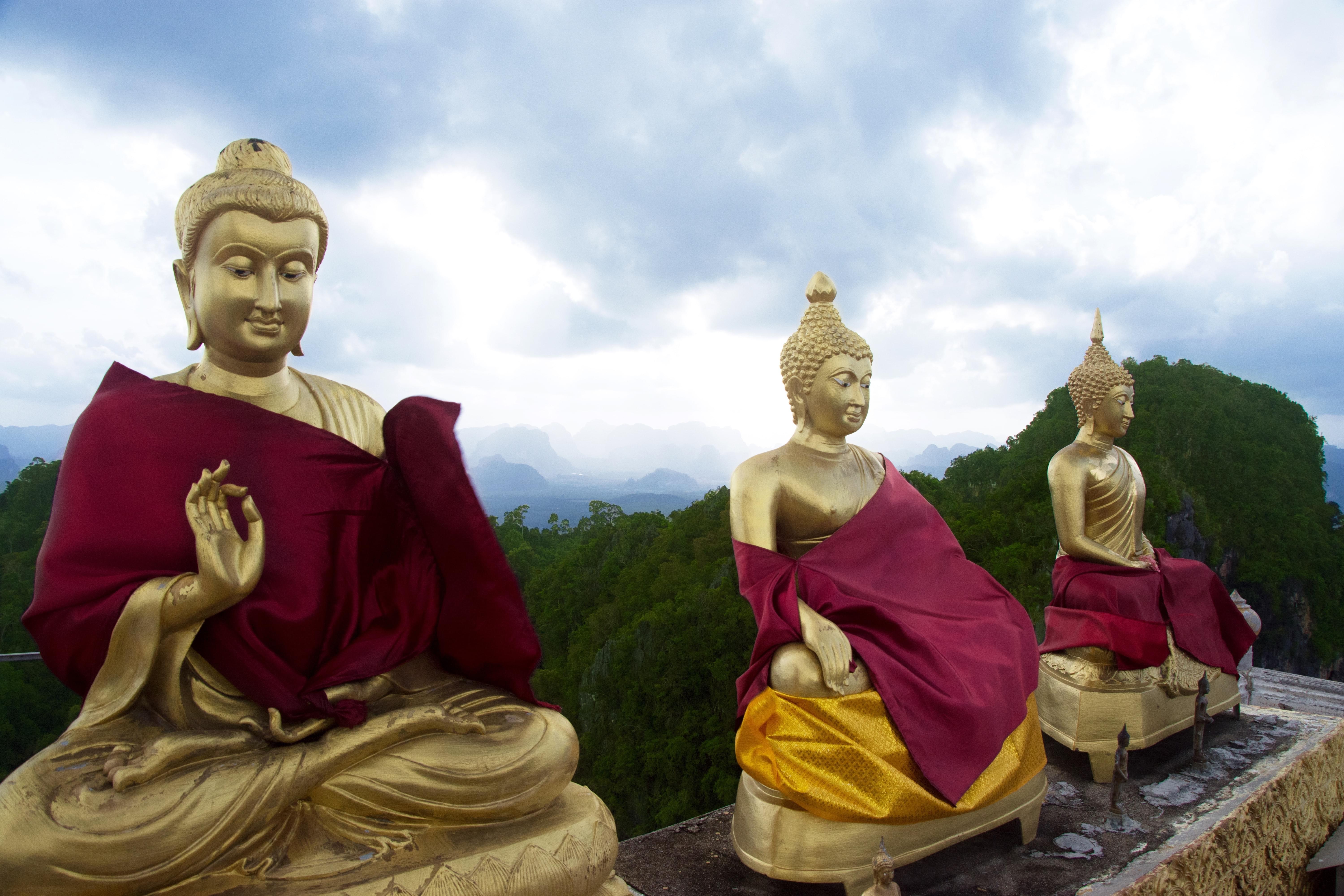
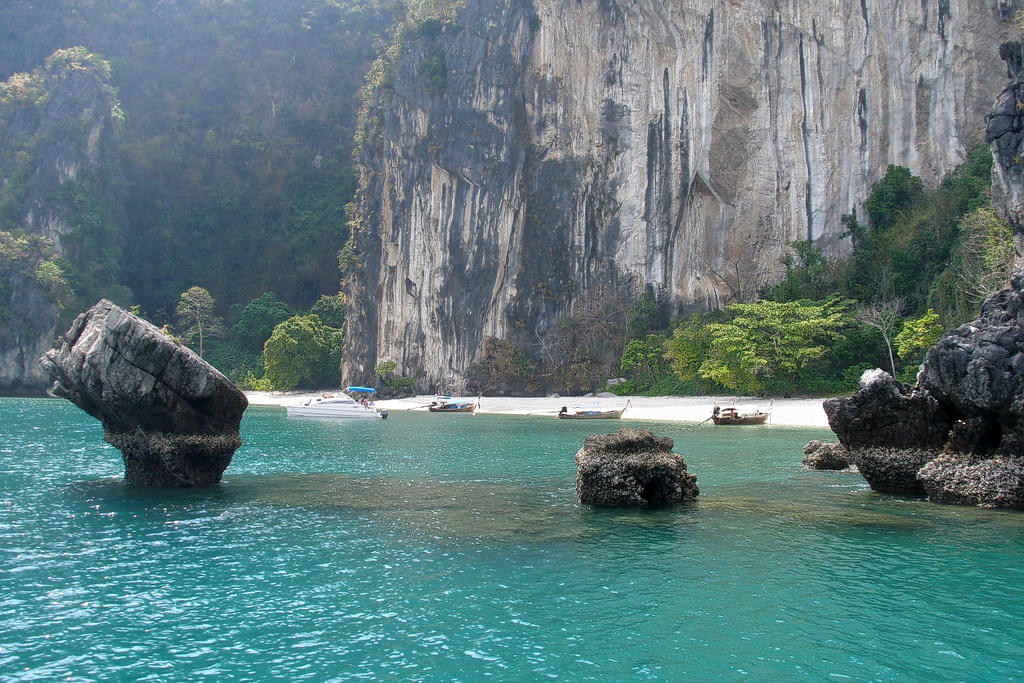
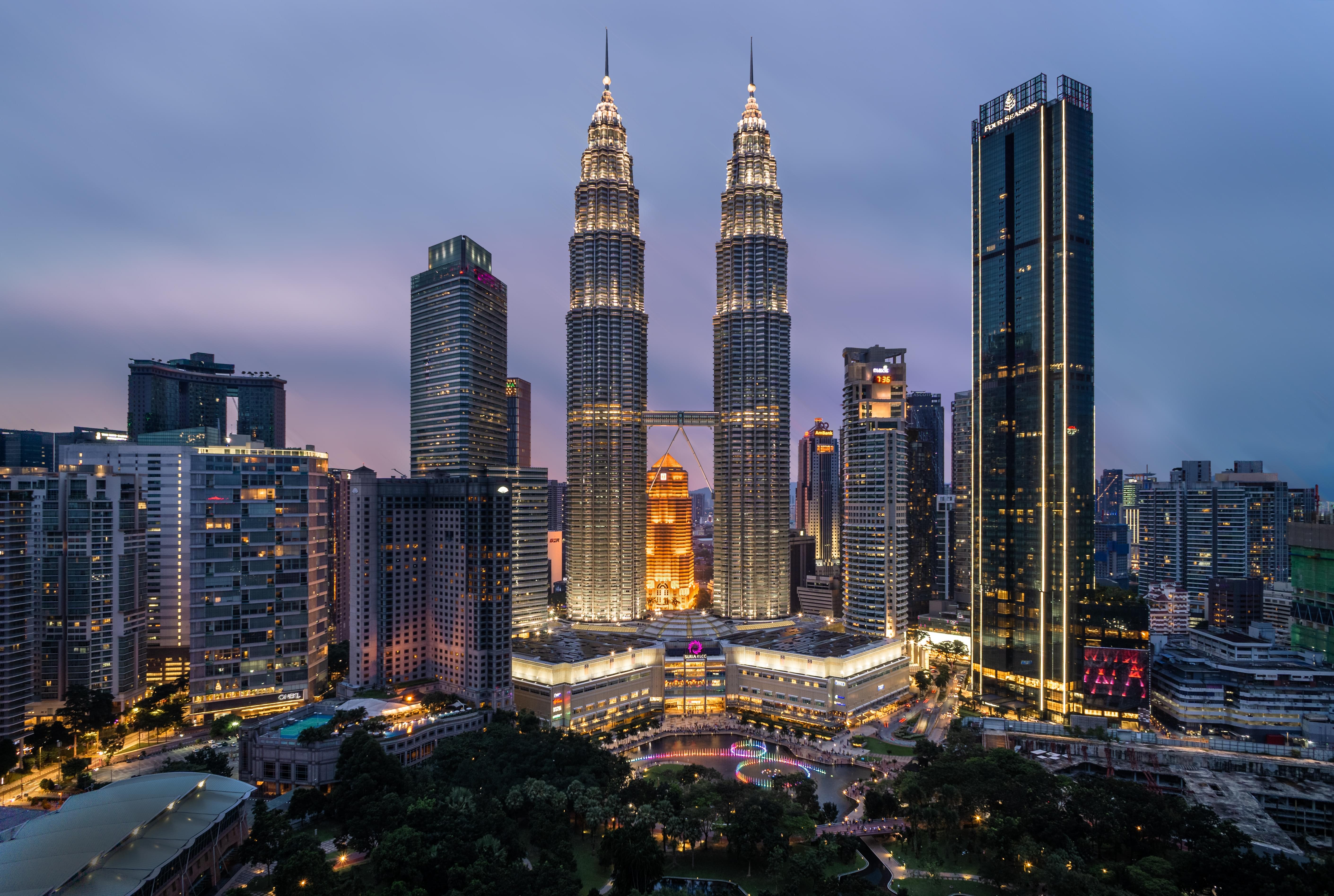
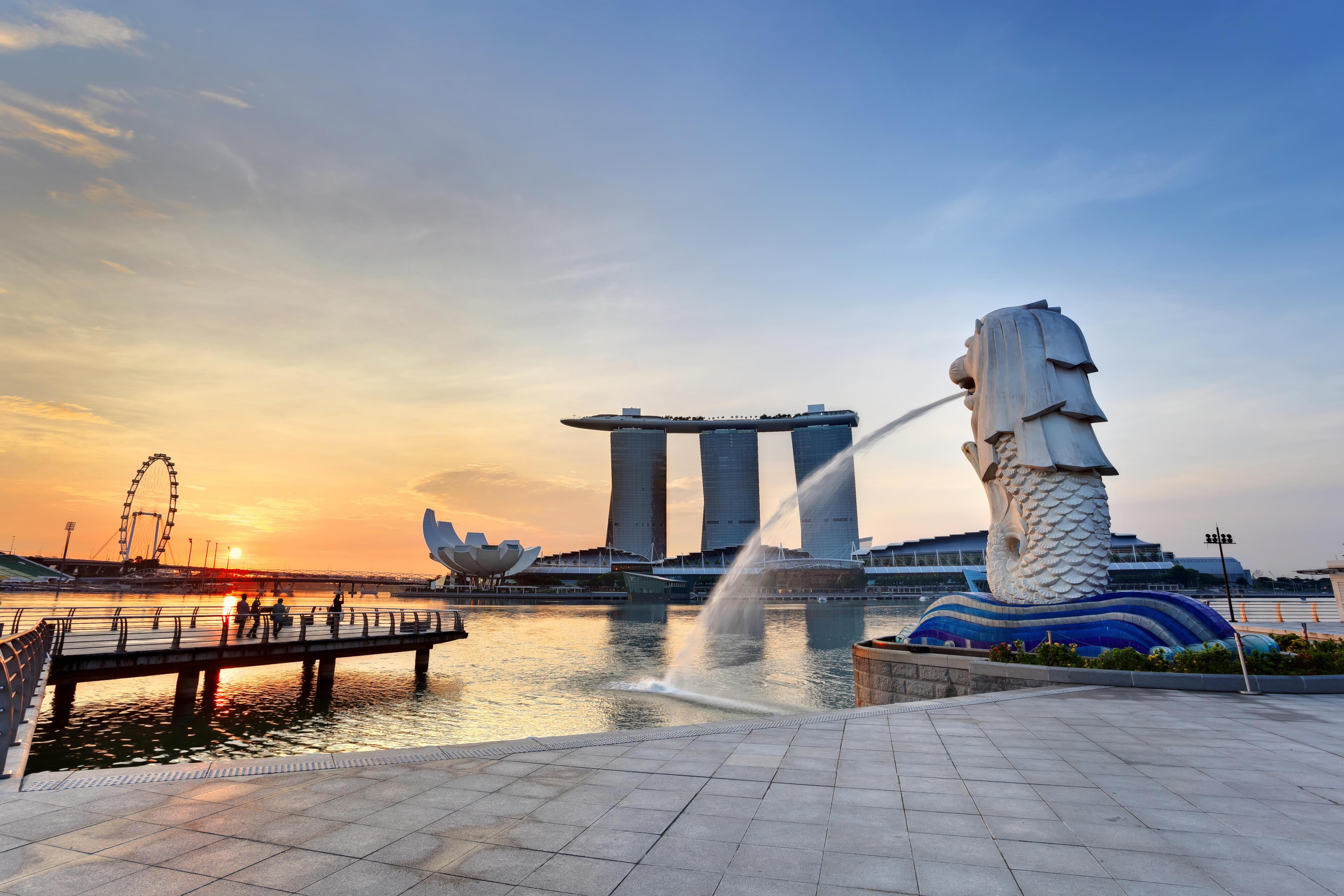
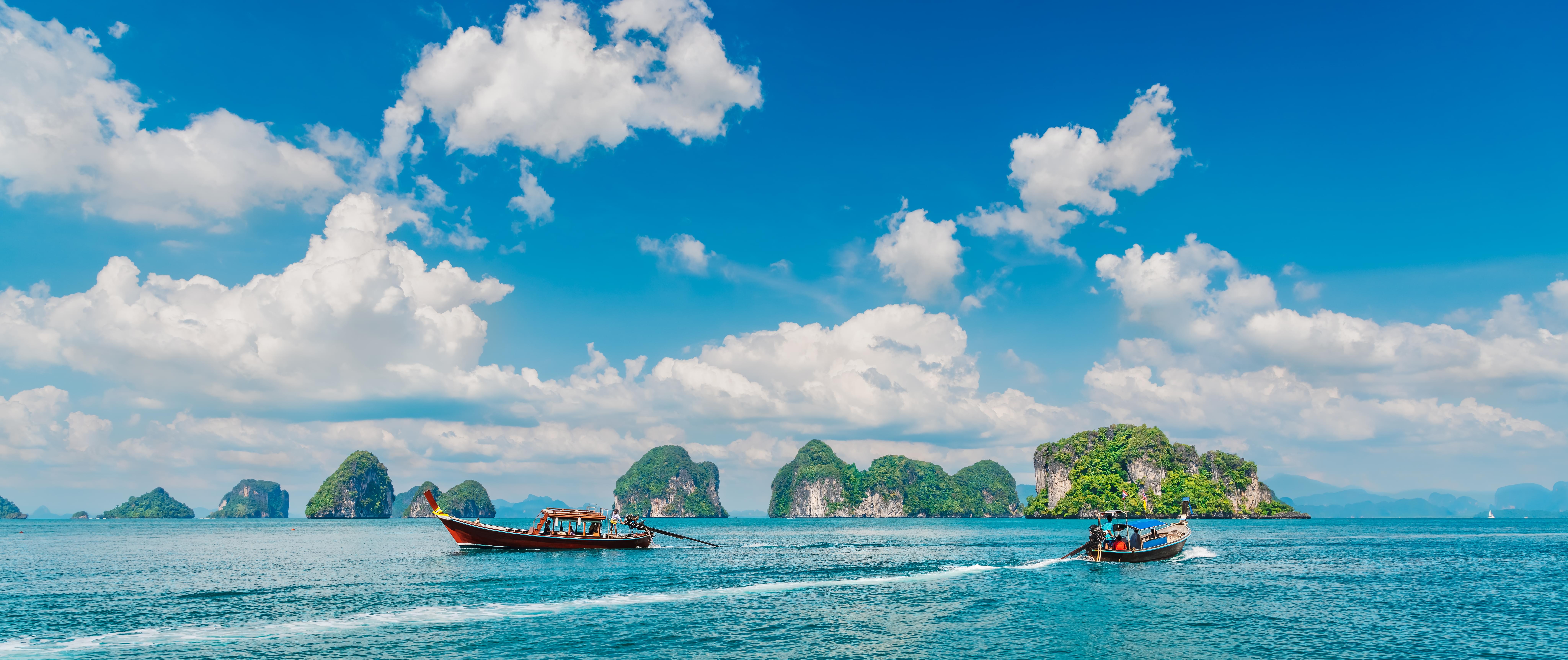
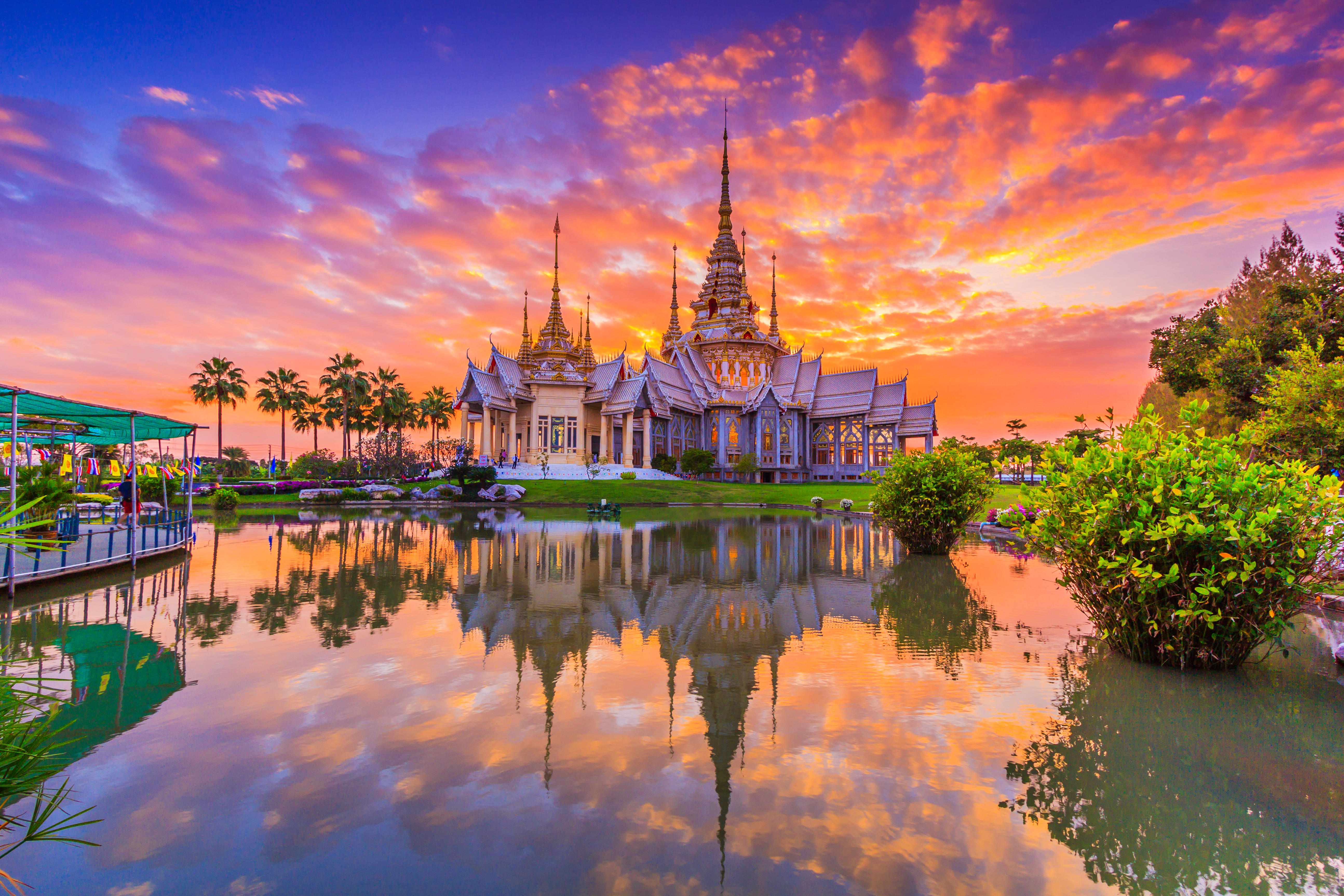
%20(1).jpg)
